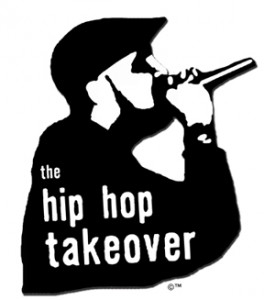Hip Hop’s Homophobia

To those outside the hip hop fan base, the name Lil’ B may not ring any bells. But when the Berkley-based rapper announced the name of his newest album to a crowd at Coachella last month, simply titled I’m Gay, sirens sounded within the community, some more menacing than others.
“I’m not gonna’ stop and I’m not scared of anybody on earth,” he told MTV.com. “That’s why I [titled the album I’m Gay] and nobody gonna’ stop me.”
Except Lil’ B isn’t gay.
“I got major love for the gay and lesbian community, and I just want to push less separation and that’s why I’m doing it,” Lil’ B said. “I hope GLAAD sees that I’m taking initial steps to break barriers.”
While Lil B’s title is among the loudest statements of support for the gay community, rappers such as Kanye West, Common, Lupe Fiasco and Nicki Minaj have all expressed respect for and solidarity with their LGBT fans. Some of the community, though, hasn’t been so quick to join the fight.
In a 2010 interview with Anderson Cooper, Eminem complained that the media was unfairly targeting his frequently homophobic lyrics, charging that his race, not content, was the cause. Homophobia, along with sexism and misogyny, is a commonly dark theme found within the lyrics of many popular hip hop acts. The theme is so common, in fact, many artists consider slurs such as “faggot” and “no homo” typical, and unworthy of attention.
However, hip hop has been a genre that has historically kept its eye on injustice, and holds close a keen sense of the bigger picture. In merely 30 years, it has risen from relative obscurity to industry domination, proving itself as not a fad, but an art giving voice and inspiration to millions. Hip hop’s history is rich, its reach vast, and its future bright. But what‘s its message?
Social revolutions have always been reflected beyond courtroom hallways and Congressional hearings. As hip hop began to transform, the poverty, violence, crime, and socioeconomic dichotomy of urban life were revealed and examined by acts such as PublicEnemy, KRS-1, and Tupac Shakur. The silenced suddenly had a voice, and the world was listening.
“Artists can have greater access to reality,” wrote rapper Jay-Z in his memoir, Decoded. “They can see patterns and details and connections that other people, distracted by the blur of life, might miss. Just sharing that truth can be a very powerful thing.”
Some of hip hop’s strongest roots stem from oppression—the continuous battle to be seen, heard, and respected, a battle that continues day in and day out. This is the perennial struggle of the LGBT community as well. And while the parallels of these unique struggles aren’t perfect, the goal is the same—equality. For a form of music so socially conscious, so revolutionary, one only hopes the industry will veer away from its prejudices and on to its future—a future of equal rights for everyone.
